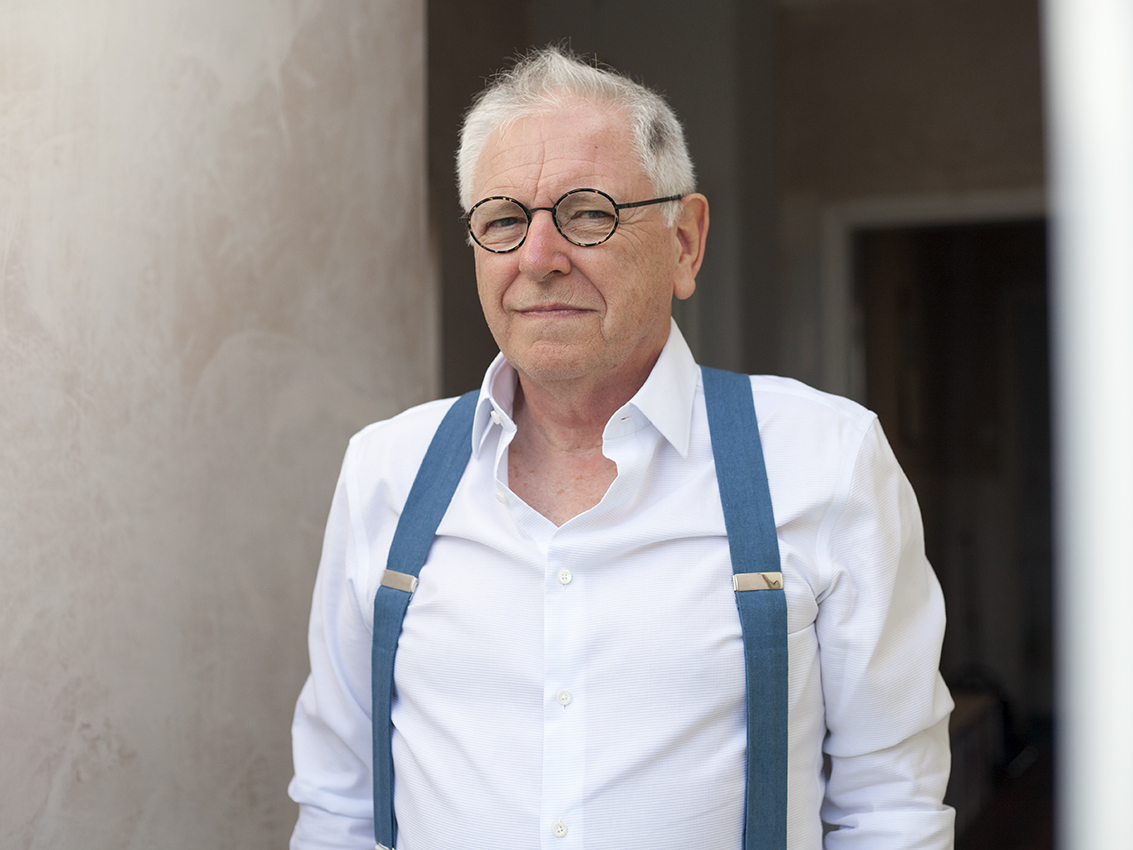David Elliott | Between Pain and Desire. What makes exhibitions of contemporary art significant?
18.03.21
Wydział Malarstwa i Rysunku Uniwersytetu Artystycznego im. Magdaleny Abakanowicz w Poznaniu ma zaszczyt zaprosić na wykład Davida Elliotta – Between Pain and Desire. What makes exhibitions of contemporary art significant? (wykład odbędzie się w jęz. angielskim)
The Faculty of Painting and Drawing of the Magdalena Abakanowicz University of the Arts Poznań is delighted to announce the lecture of David Elliott Between Pain and Desire. What makes exhibitions of contemporary art significant?
In a general discussion of such values as ‘quality’, ‘beauty’ and ‘honesty’ in contemporary art and how this relates to the art of earlier times, Elliott discusses in detail two large inaugural exhibitions of international art he conceived as the Director of newly built museums in Stockholm (Moderna Museet) and Tokyo (The Mori Art Museum). He describes, in particular, how art from many different origins was chosen to relate to the specific cultural and historical contexts in which the exhibitions took place.
The first, entitled Wounds: between democracy and redemption in contemporary art (1998), examines conflict and pain as a source of art, its role of exorcism or healing, and the different ways in which this was expressed. The second exhibition Happiness: a survival guide for contemporary art (2003) presents an imaginary journey across four overlapping ‘continents’ of Happiness: Arcadia, Nirvana, Desire and Harmony – expressing discrete iconographies of culture, metaphysics, consumption and pragmatism – that each, sometimes paradoxically, reflect different traditions, cultures, aesthetics and values.
David Elliott (born Manchester, 1949) is a British art historian, curator, writer and teacher who has directed museums in Oxford (MoMA 1976-1996), Stockholm (Moderna Museet, 1996-2001), Tokyo (Mori Art Museum, founding director 2001-2006), Istanbul (Museum of Modern Art, 2007) and Guangzhou (Redtory Museum of Contemporary Art, vice director, senior curator 2015-19).
He has been the artistic director of major biennales in Sydney (2010), Kyiv (2012), Moscow (2014) and Belgrade (2016) and has taught Art History/Museum Studies at the University of Oxford (1986-96), National University of the Arts, Tokyo (2002-06), Humboldt University, Berlin (Rudolf Arnheim Professor in the History of Art 2008), and the Chinese University of Hong Kong (2008-2016).
A specialist in Soviet and Russian avant-garde, as well as in modern and contemporary Asian art, he has published widely in these fields as well as on many other aspects of contemporary art. Art and Trousers: Tradition and Modernity in Contemporary Asian Art, his most recent book, will be published by the ArtAsiaPacific Foundation in September 2021.

‘The sealed studio’ talks
The lecture of David Elliott is the third one from the series of talks initiated and moderated by Prof. Dominik Lejman, II Studio Painting course director organized by the Faculty of Painting and Drawing, M.A. University of the Arts, Poznań with the support of Dr hab. Tomasz Kailitko, the dean of the Faculty of Painting and Drawing
The series of on-line lectures is dedicated to encounter with the critical thought of the most renowned contemporary theoreticians, art critics, curators and artists. At the time of the pandemic solitary confinement, we believe that with our effort the forced physical distance can be reshaped into the advantage of the greater proximity in exchange of ideas.
‘The sealed studio’ talks
Wystąpienie Davida Elliotta jest trzecim z cyklu wykładów on-line inicjowanych i moderowanych przez Prof. Dominika Lejmana, kierownika II Pracowni Malarstwa zorganizowanych przez Wydział Malarstwa i Rysunku Uniwersytetu Artystycznego im. Magdaleny Abakanowicz w Poznaniu pod opieką dziekana Wydziału Malarstwa Dr hab. Tomasza Kalitki.
Cykliczne wykłady on-line zadedykowane są przybliżeniu myśli krytycznej najbardziej znaczących, współczesnych teoretyków, krytyków sztuki, kuratorów i artystów. W czasie pandemicznego odosobnienia, wierzymy, że dzięki naszym wysiłkom wymuszony dystans fizyczny może przeistoczyć się w korzyść zbliżenia wymiany myśli.
Dominik Lejman 2021
- Author: Piotr Grzywacz
- Published on: 16.03.2021, 02:36
- Last edit: 09.12.2022, 13:10

